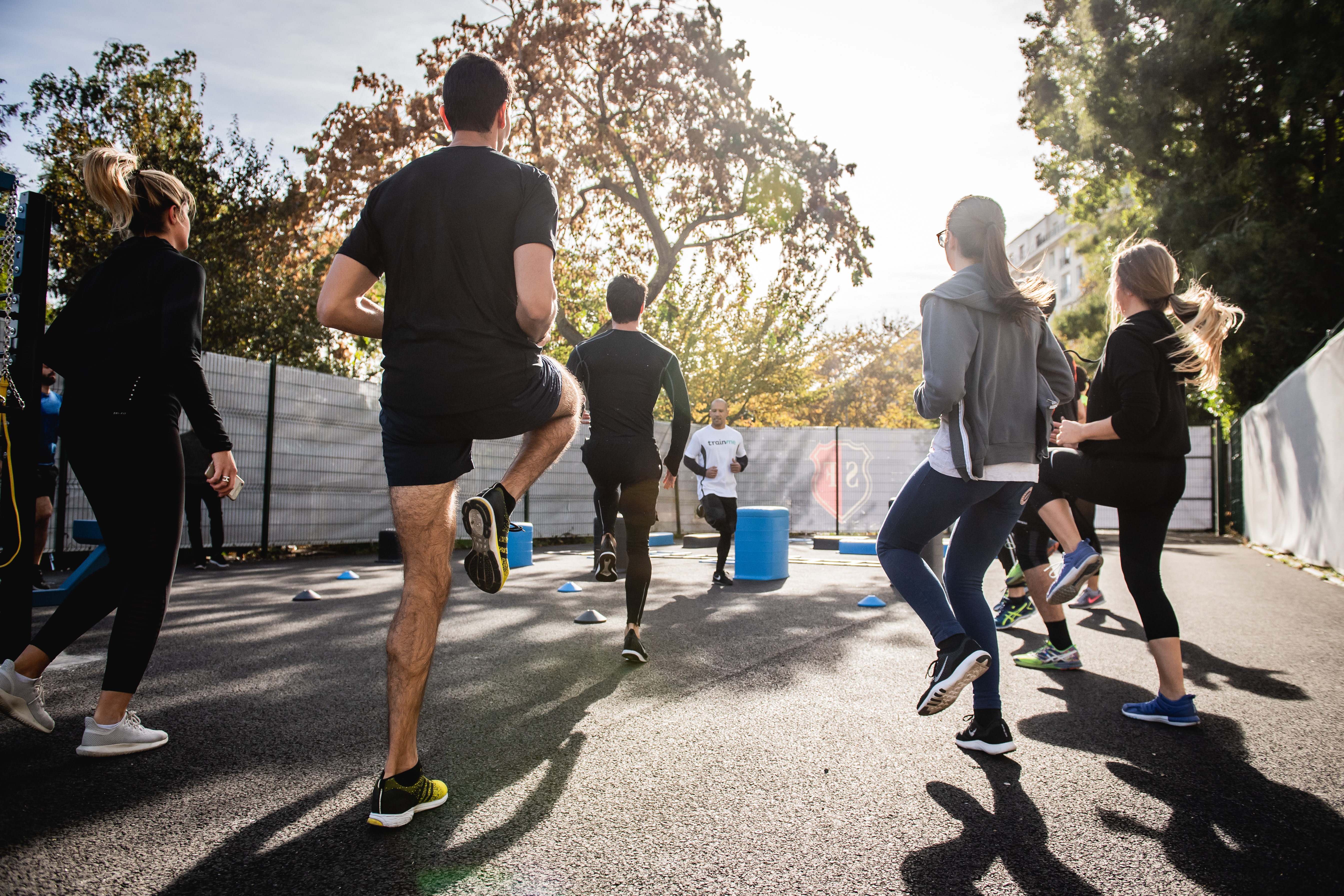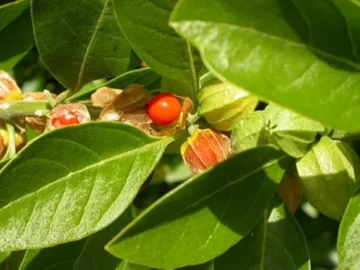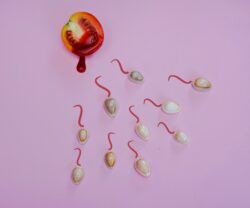Supplement Check: Chasteberry
Even as a dietitian, it is at least once a month that I meet with a new client and they mention vitamins or supplements that I have never heard of. When I hear this, it really motivates me to dig deep to figure out what exactly those supplements are and the research behind it’s reported benefits.
A supplement I recently came across is called Chasteberry. This supplement intrigued me. I decided to investigate its benefits and whether or not it was backed by any solid research. Here is some information I came across…
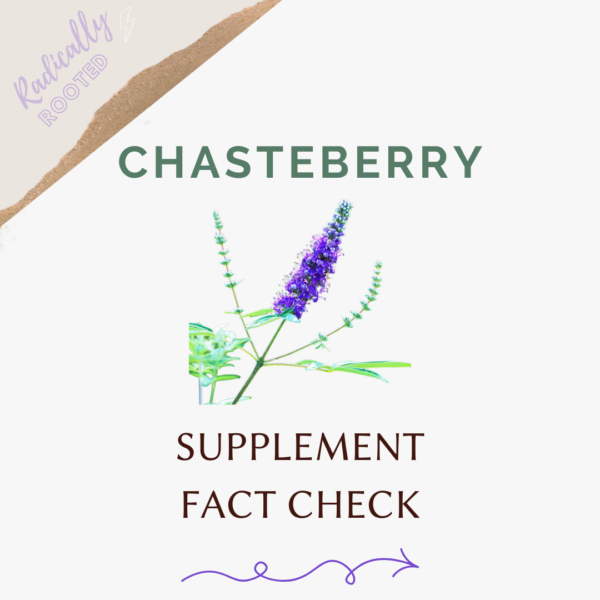
What is It & Where Does it Come From?
Chasteberry is derived from fresh or dried, green, sterile shoots of the plant Vitex agnus-castus, a small flowering tree native to Asia and the Mediterranean regions but can now also be found in southeastern parts of North America. Some often refer to it as “vitex”.
If you look up the word chaste in Mariam-Webster Dictionary, the definition is “innocent of unlawful sexual intercourse”. It makes sense why the name “chasteberry” may reflect the traditional belief that the plant promoted chastity, as monks in the Middle Ages reportedly used it to decrease sexual desire. In the past, chasteberry extracts were used to treat a variety of gynecological disorders and skin conditions. In the U.S., it is available over the counter in capsules, extracts, gummies and teas.
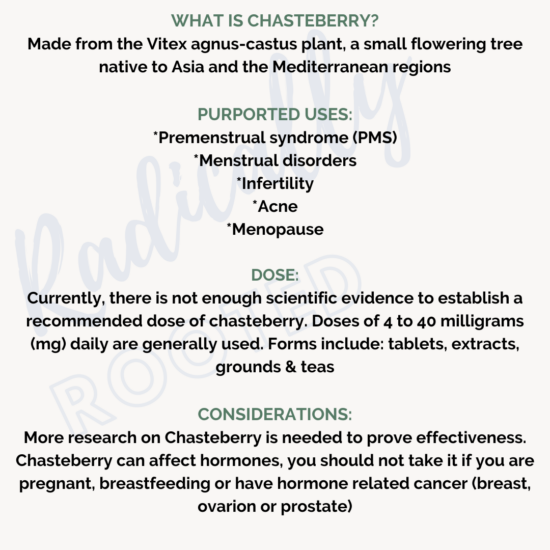
What is it Used For? What are the Benefits of Chasteberry?
Currently, there’s no definitive clinical evidence that chasteberry helps treat any conditions. However, Chasteberry is a popular herbal supplement used to treat a variety of health problems.
Chasteberry is commonly used to treat:
- premenstrual syndrome (PMS)
- menstrual disorders
- infertility
- acne
- Menopause
Lab studies show that chasteberry contains substances that can prompt hormonal changes in the body.
Chasteberry & PMS Symptoms
Several studies have shown that chasteberry may relieve PMS symptoms such as breast pain, headaches, irritability, and depression.
A high-quality RCT showed significant improvement in self-assessed symptoms associated with PMS. In this study, more than half of the women experienced 50 percent or greater reduction in symptoms.
Another study of women with PMS took chastberry during three consecutive menstrual cycles. In total, 93 percent of those women reported a decrease in PMS symptoms, which included depression, anxiety and cravings.
Chasteberry & Infertility
When it comes to infertility, studies on chasteberry are promising but still in progress. Many women who experience infertility, may have issues with the luteal phase of their menstrual cycle. The luteal phase is the time between ovulation and the start of your period. It is during this phase that progesterone levels increase, causing the uterus lining to thicken in preparation for pregnancy. If there is not adequate progesterone, the uterus cannot thicken to support a pregnancy.
Researchers have found that chasteberry may increase progesterone production. Participants in a small study took 20 milligrams of chasteberry daily for three months. Results showed that it helped reduce prolactin levels, normalize luteal phase length, and improve progesterone synthesis.
Another study gave 93 women who had unsuccessfully tried to become pregnant over the last 6–36 months a supplement containing chasteberry or a placebo.
After three months, women in the chasteberry group experienced improved hormone balance and 26 percent of them became pregnant. In comparison, only 10 percent of those in the placebo group became pregnant.
Chasteberry & Menopause
Chasteberries may also alleviate symptoms of menopause due to their hormone-balancing properties. The low level of hormones during menopause can cause symptoms such as hot flashes and depression.
Several studies have indicated that chasteberry may have positive effects on menopausal symptoms, such as reducing hot flashes and night sweats and improving mood. This may be because chasteberry contains phytoestrogens, natural substances that mimic estrogen (the hormone that your ovaries stop making after menopause).
However, not all studies have observed benefits. One recent and larger double-blind, randomized, controlled trial gave women a placebo or a daily tablet containing a combination of chasteberry and St. John’s wort. After 16 weeks, the chasteberry supplement was no more effective than the placebo at reducing hot flashes, depression or any other menopausal symptom
10 Ways to Lower Blood Sugar Levels for Weight Loss and Hormone Balance Why is lowering blood sugar important? In […]
Forms of Chasteberry
Today, you can find many different forms of chasteberry products available. The berries are dried and made into all different forms including:
- Soaked in alcohol to make a tincture (extract of herb created by an alcohol solvent)
- Soaked in water, glycerine, vinegar, or other solvent to make a liquid extract
- Ground into powder and added to a capsule or made into a tablet
- Ground into peppercorns to be added to food
- Broken down to be used as a tea
Chasteberry can be purchased at many health food and drug stores.
Suggested Dose of Chasteberry
Currently, there is not enough scientific evidence to establish a recommended dose of chasteberry. Doses of 4 to 40 milligrams (mg) daily are generally used. Research studies investigating the herb’s effects on various conditions have investigated different doses. It is best to speak with a healthcare professional if you are strongly considering taking chasteberry.
Chasteberry is not regulated by the U.S. Food and Drug Administration (FDA), making it difficult to know which brands are reputable.
Side effects
The side effects of chasteberry may include:
- Nausea
- Upset stomach
- Diarrhea
- Itchy rash
- Acne
- Heavy menstrual flow
Chasteberry can affect levels of hormones that play a key role in pregnancy, breastfeeding, menstruation, and some hormonal cancers. You should not take chasteberry if you:
- Are pregnant or nursing
- Have breast, ovarian or prostate cancer
- Have a hormone-sensitive condition like- endometriosis and uterine fibroids
Chasteberry shouldn’t be taken without consulting a healthcare provider who has experience with its use. There are some concerns that it can decrease the effectiveness of oral contraceptives or hormone replacement therapy.
The Bottom Line
Chasteberry is an herbal product that can affect hormone levels. Some research has shown that it may improve symptoms of PMS, ease menopause, or even help with infertility. However, stronger research data is needed. If you think Chasteberry may help you, it is important to speak with a healthcare professional who is an expert in the use of this supplement.

